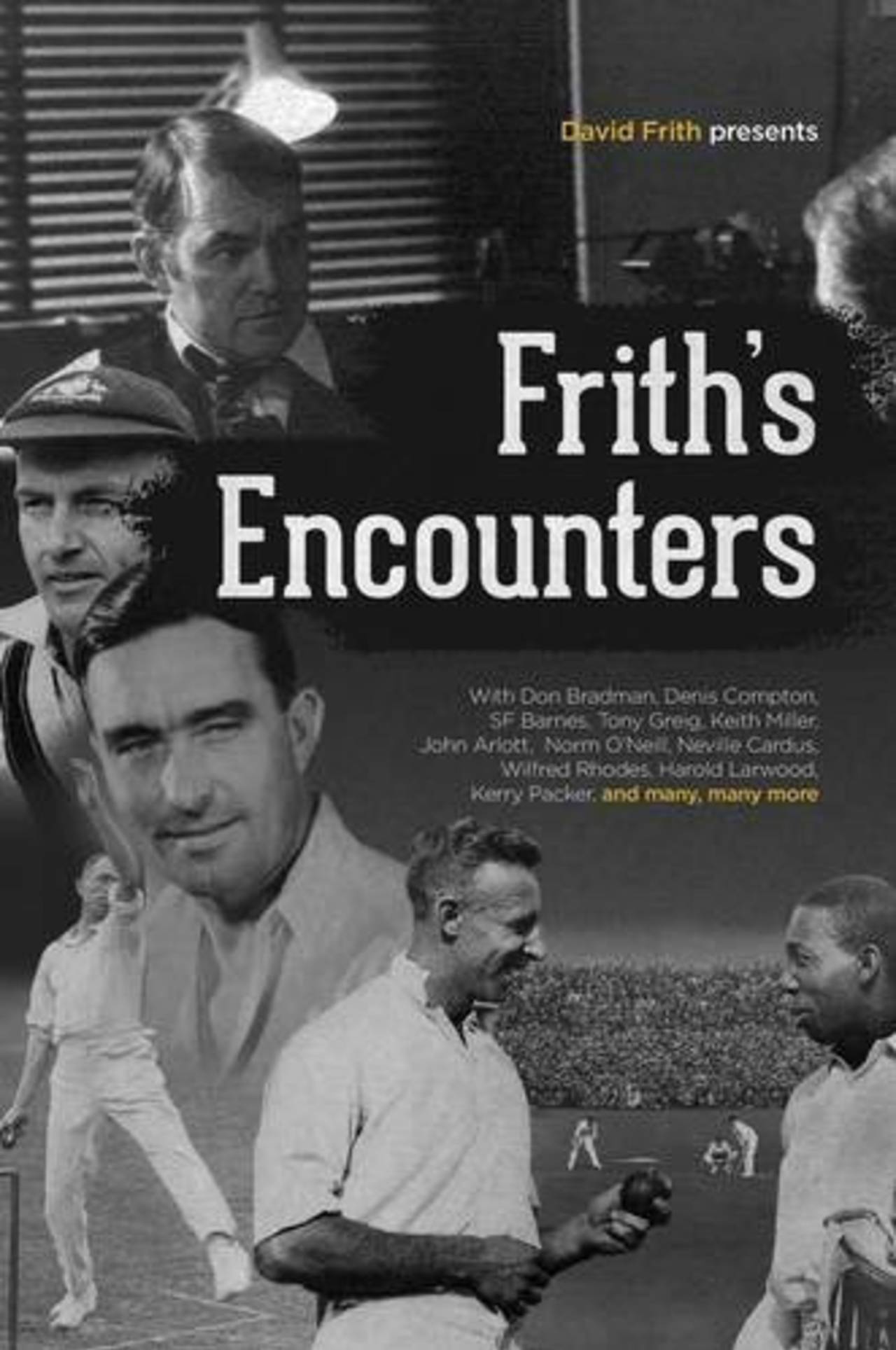David Frith appears on the cover of his new book in the top left-hand corner in front of a shaded window and a piercing desk lamp, looking a little like a detective about to administer the third degree. I dare say that few cricketers have felt like that over the years, meeting someone who seems to know more about them than they do themselves.
My favourite Frith story concerns him attending a reception at the Houses of Parliament and being accosted by a supercilious MP. "You know so much about cricket," said the MP. "But I bet you don't know who scored the fastest fifty in the history of Test cricket?" Frith took a deep breath and replied evenly: "JT (Jack) Brown of Yorkshire, Melbourne, 1895, 28 minutes - though he claimed it was only 27 - and I've got the bat at home!" Touche!
He is on precise and vigilant form in this latest addition to his oeuvre, Frith's Encounters, which collects a long-running series from the old Wisden Cricketer, and adds a few more from the memory bank. He tells you of Laurie Nash's defoliant breath, of Alan Kippax's "red satin smoking jacket" with cigarette "set in an ivory holder". He recalls that Brian Sellers' letterhead was a sketch of a couple making love, that Keith Miller signed his autograph "eith" and "iller", and only then flamboyantly added the "K" and "M". He recounts having to decrypt Percy Fender's misprint-strewn typewritten letters. He describes a meeting with the socially conscious Charlie Barnett: "His rosy cheeks flushed when someone in our group referred to Charlie's shop in Cheltenham as a 'butcher shop', for it was actually a slightly up-market establishment where he sold fish and game." There is all England in that sentence.
Nor is this showboating. It's actually a memento of a time when cricketers walked the same common clay as ourselves. Like Martin Amis, son of Kingsley, who said that he'd been namedropping from the first time he said "Dad", Frith met great cricketers long before he sought them out. He bought his first bat in the Hunter Street sports store run by Bert Oldfield. It cost two pounds and Oldfield threw in a free tin of oil. Charlie Macartney worked upstairs. One day, Trevor Bailey and Reg Simpson walked in. Stan McCabe and Alan Kippax had stores too. Cricket people, he grew up believing, were accessible and he kept them so; some of them actually craved company, like John Arlott who "could not bear to be alone".
That gives the book an elegiac note, for although Frith has gleaned recollections dating back to the Victorian Age, there is barely a cricketer mentioned from the last quarter-century. "Though they probably think otherwise, what dull lives modern cricketers lead," thinks Frith, and he is right that those lives are safer and more mundane, although the cricketers can be interesting all the same. Perhaps it is merely more challenging for them to be so.
But Frith is not the shy boy with the autograph book who never grew up. He is peppery, acerbic, and more human for being so - not all encounters are pleasant, not all associates become friends. Bill Edrich sounds like a bore, Peter May a prig. Christopher Martin-Jenkins, a rival editor, appears as petty, although EW Swanton is fondly described. Colin Cowdrey exudes a "politician's guardedness". Alan McGilvray was "rather short on humour and enjoyed nothing more than a crack at Don Bradman". Peter Roebuck is witheringly credited with "beguiling so many sports editors with his supposed insights". Beyond a Boundary is "often referred to as the finest of all cricket books - not least by people who have never read it".
So we're not talking Frank Keating here - although His Frankness is affectionately saluted. Frith had a warm rapport with Bradman, for perhaps in their respective fields they were not unalike. The Don, he notes, "seemed to regard the bowling of a full toss as a symptom of defective character", and adds that he "loved him for that". About David Frith I feel a bit the same way.
Frith's Encounters
by David Frith
Von Krumm Publishing
£15

Gideon Haigh is a cricket historian and writer



